
How Vancouver Foundation staff are reflecting on Black History Month
March 19, 2024
This month, we’ve asked some of our staff to reflect on what Black History Month means to them and what dismantling anti-Black racism looks like. Their reflections are nuanced, multi-faceted and deeply personal. We hope their stories will inspire you to keep learning about Black history and allyship — beyond the month of February.
Moses Mukasa: Unlearning colonial thinking to cultivate identity
Moses Mukasa is reflecting on who he truly is. He grew up in Uganda, a country the British colonized for decades until 1962.
“Within a system that was created to oppress you… you grow up aspiring to be white,” he said.
Mukasa said his parents valued education and because in Uganda, English is still the country’s official language, they encouraged him to learn English — but that also meant putting his culture and language aside to adopt ‘the British way.’
Over the past few years, he’s been working to unlearn those teachings.
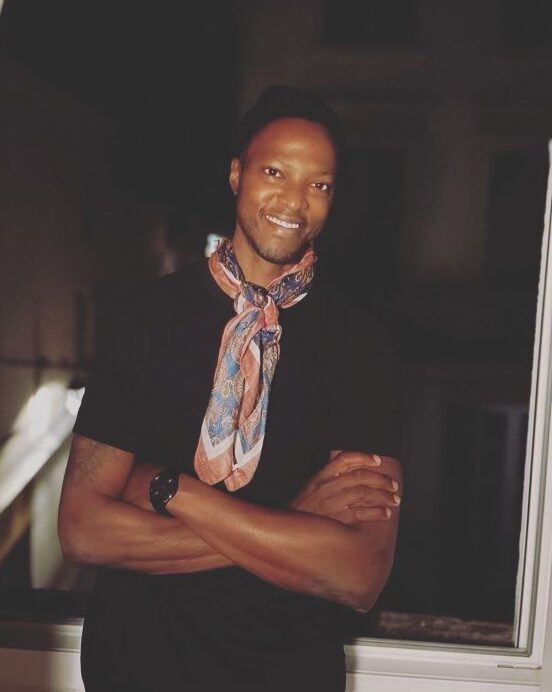
Moses Mukasa is the Director of Donor Services at Vancouver Foundation. Photo submitted by Moses Mukasa.
“I’ve been trying to tap into who I truly am, my culture and who I am as a Black person, and what it means to be a Ugandan-Canadian,” said Mukasa.
“It’s not easy because at times, I feel that I’ve lost my true identity. When I’m in Canada, I’m still not looked at as ‘Canadian.’ When I go back home, I’m looked as not fully Ugandan,” he said.
Mukasa says to cultivate his identity again, he needs to be around people with similar experiences.
“I need to be around people who look like me, people who are going through the same experiences — Black and Brown people — and find a space where we can acknowledge each other’s struggles,” he said.
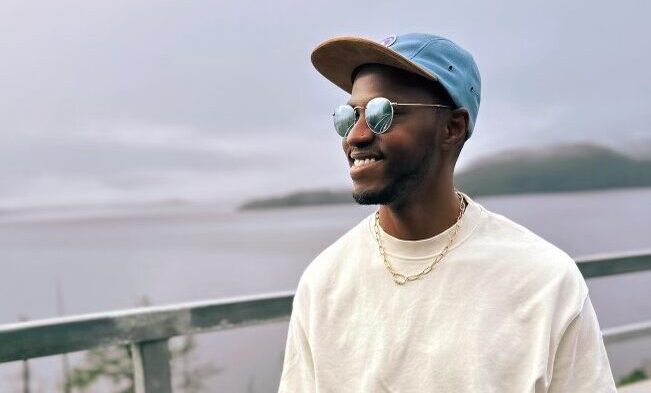
Moses Mukasa says he’s been cultivating his identity again by connecting with Black and Brown people with similar experiences. Photo submitted by Moses Mukasa.
For him, fighting anti-Black racism starts with creating spaces where diverse voices can be heard . It also requires confronting our own biases and attitudes, he says.
“It’s not something that happens in one or two days. It’s a constant revaluation of the way you take up space,” said Mukasa. “And truly do the work to tear up those biases.”
Kim Regala: Fighting colourism through open conversation
Kim Regala is thinking about allyship. For her, that starts with speaking up against racism within her own family.
“There’s a lot of racism I experienced growing up, not specifically towards me, but outwardly from my own community,” she said.
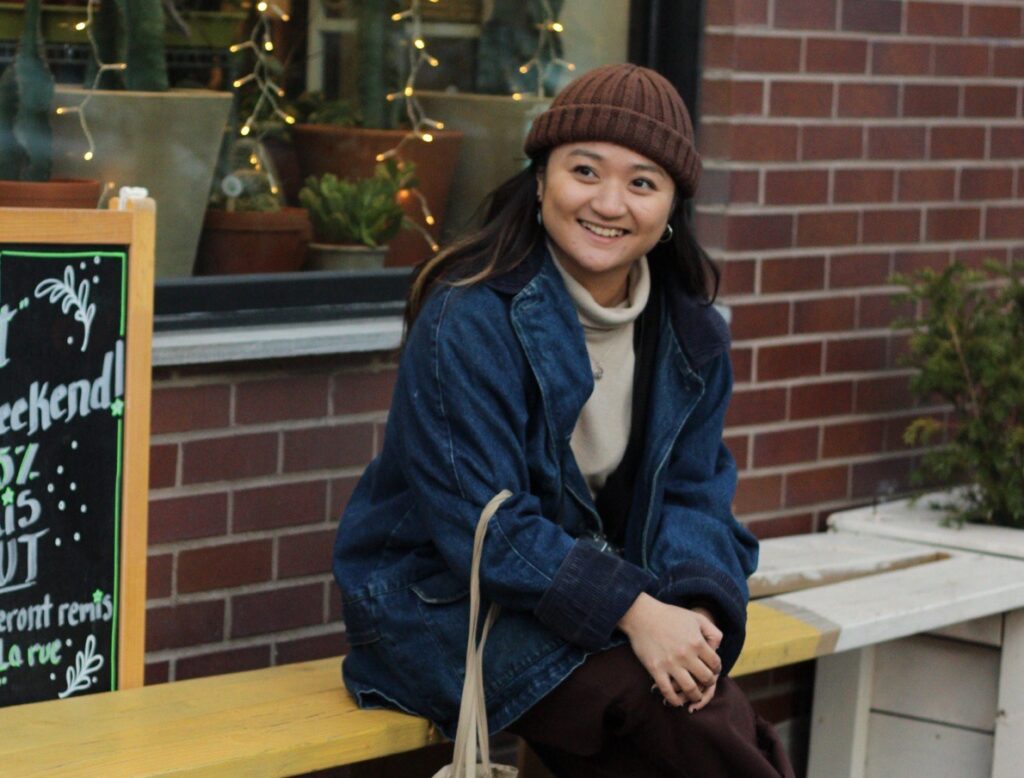
Kim Regala is the Communications Coordinator for Vancouver Foundation. Photo submitted by Kim Regala.
Regala has witnessed colourism within the Filipino community, where those with fairer skin can be treated better.
“It’s something to unlearn over time and those are hard conversations to have, especially with people you also respect, right? But sometimes, you must do the hard thing,” she said.
After watching the film Union Street , Regala is also thinking about supporting Black spaces. Hogan’s Alley, located in Vancouver’s Strathcona neighbourhood, housed the city’s largest Black and African diaspora community — until the city displaced them to construct the Georgia Viaduct in 1972 .
Regala says learning about that history pushes her to support more Black-owned businesses and events because they’re crucial for belonging. It’s also essential to support Black spaces, so they can thrive and be economically sustained for a long time, she says.
“All of our experiences [as BIPOC] are very connected. Uplifting these voices is important because we’re in solidarity with each other.”
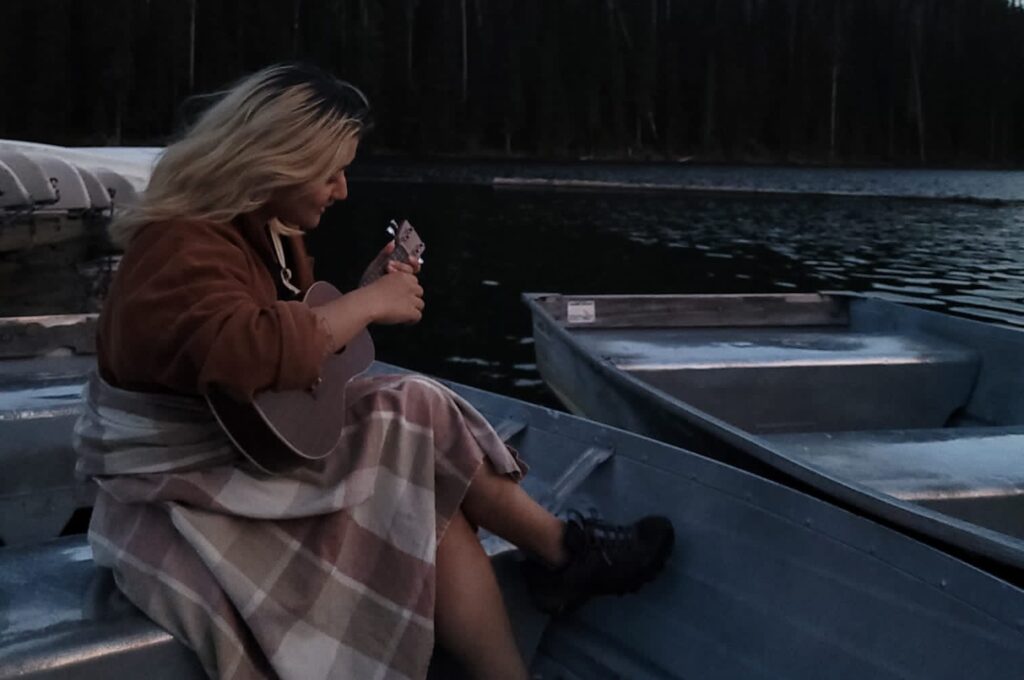
Kim Regala says she’s been thinking about her role in supporting Black spaces. Photo submitted by Kim Regala.
Ashley McKay: Creating a legacy for future generations
Ashley McKay is thinking about her parents’ legacy. Growing up, she watched them mentor youth and change how Black history is taught and understood in schools.
“My parents were always very involved in the Black community… I used to joke with my parents that we never saw them during Black History Month because they would always be speaking at different engagements,” McKay said.
After witnessing their lifetime of community service and advocacy, she’s now thinking about her own legacy.
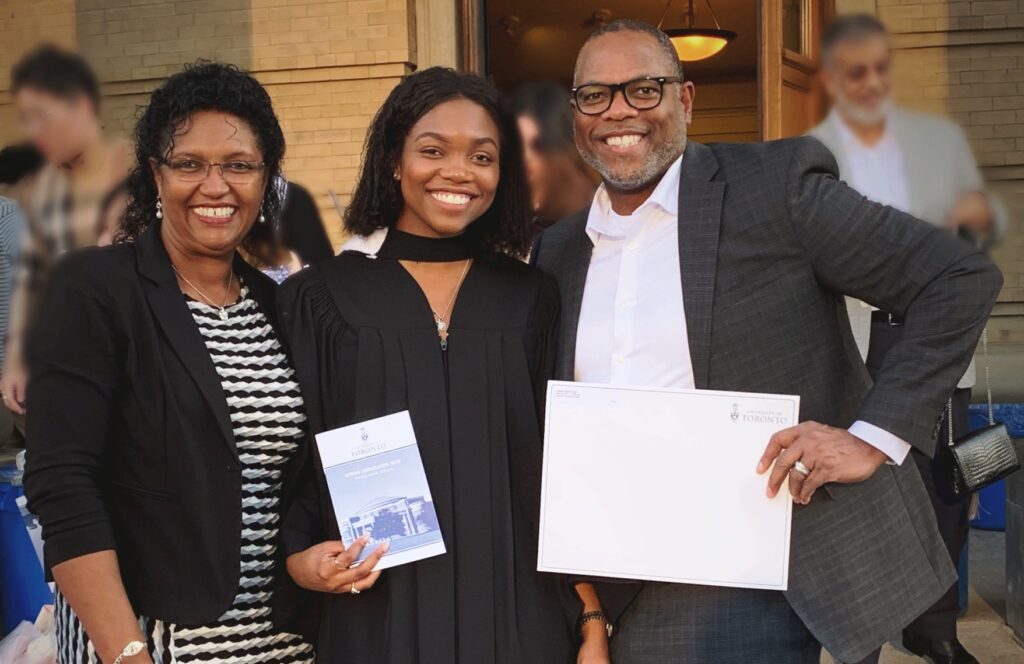
Ashley McKay (center) pictured next to her parents. Photo submitted by Ashley McKay.
“My parents were standing on the shoulders of giants and I hope to do that as well,” she said. “As I get older, I think about how I can now use my privilege to invest in the next generation… I want them to be able to stand on my shoulders.”
McKay believes tackling anti-Black racism starts with removing labels and stereotypes. It also means building authentic relationships with Black people and not seeing them as a monolithic group, she says.
“Don’t just see me as a fragile product of slavery,” she said. “Don’t assume you know a person just because of the colour of their skin.”
“We all have different journeys and lived experiences, so making assumptions or stereotyping us further harms the progress we all want to see in the world,” said McKay.
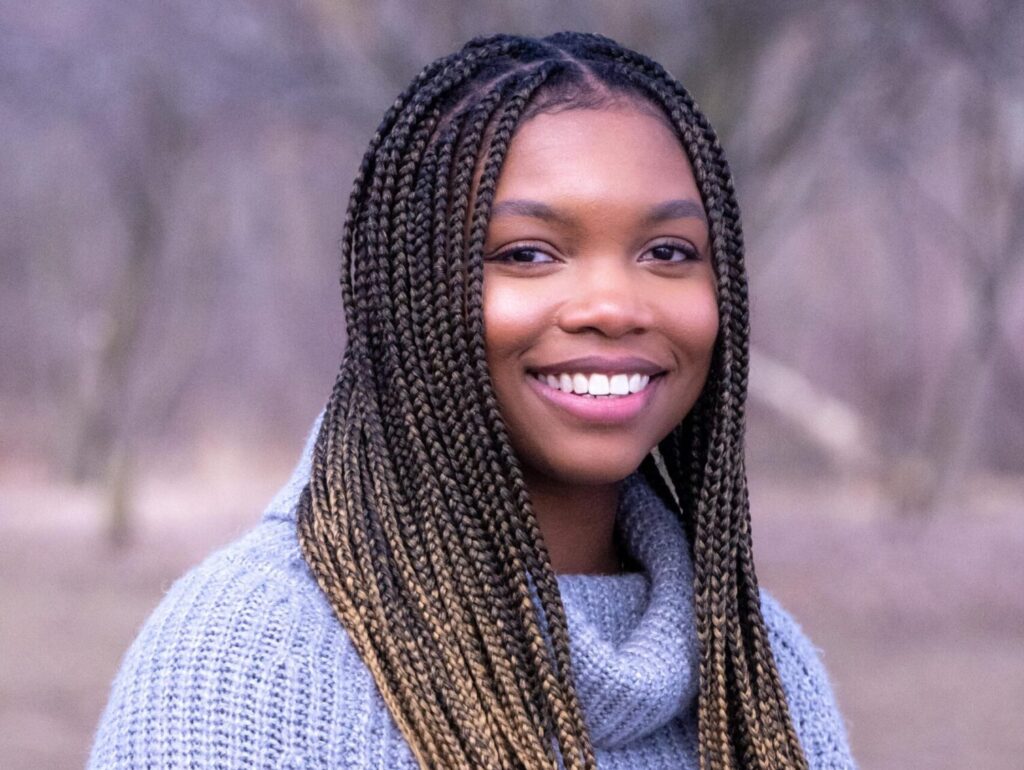
Ashley McKay is Vancouver Foundation’s Senior Manager of Strategic Communications. Photo submitted by Ashley McKay.
Supporting Black-led change
This February, we’ve been highlighting a few of the Black-led organizations we’ve had the honour of supporting through our grants and programs. We look to these organizations as trailblazers in the non-profit sector and we encourage you to learn more about their work.
Vancouver Foundation is on a journey to dismantle anti-Black racism and that means supporting Black-led initiatives beyond the month of February. We’ll continue to learn about and amplify the ongoing contributions of Black community members. We invite you to join us on this life-long journey.

